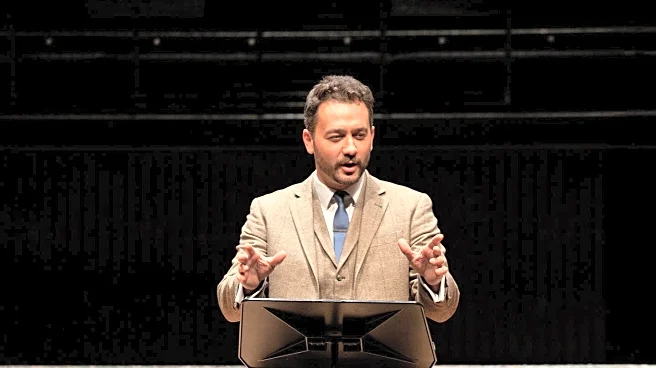What's Happening?
Ryan Raybould, a former federal prosecutor and current partner at Kirkland & Ellis, is nominated to be the US attorney for the Northern District of Texas. His wife, Brooke Raybould, is a social media influencer with 1.2 million followers on Instagram,
where she shares personal details about their family life. This has raised security concerns among former US Marshals Service officials, who worry that the public nature of Brooke's posts could pose risks to the family if Ryan is confirmed. The Northern District of Texas is known for handling threats against judges, and the US attorney role is public-facing, potentially making Ryan a target.
Why It's Important?
The nomination of Ryan Raybould as US attorney is significant due to the potential security implications stemming from his wife's social media presence. As Brooke Raybould shares detailed information about their family and home, it could increase the risk of threats or unwanted attention. This situation highlights the intersection of public service roles and personal social media use, raising questions about privacy and security for public figures. The US Marshals Service may need to allocate additional resources to ensure the family's safety, impacting how security is managed for public officials.
What's Next?
If confirmed, Ryan Raybould will need to navigate the challenges of his public role while addressing security concerns related to his wife's social media activity. The US Marshals Service and other entities may engage with the Raybould family to discuss security measures. Brooke Raybould may need to adjust her social media practices to minimize risks, such as delaying posts or avoiding sharing identifiable information. The situation could prompt broader discussions on the responsibilities of public figures and their families in managing online presence and privacy.
Beyond the Headlines
The case of Ryan and Brooke Raybould underscores the evolving nature of privacy and security in the digital age, particularly for families of public officials. It raises ethical questions about the balance between personal freedom and public responsibility, as well as the potential need for new guidelines or policies for public figures with significant social media followings. This situation could lead to increased awareness and dialogue about the implications of social media use for individuals in public service roles.















